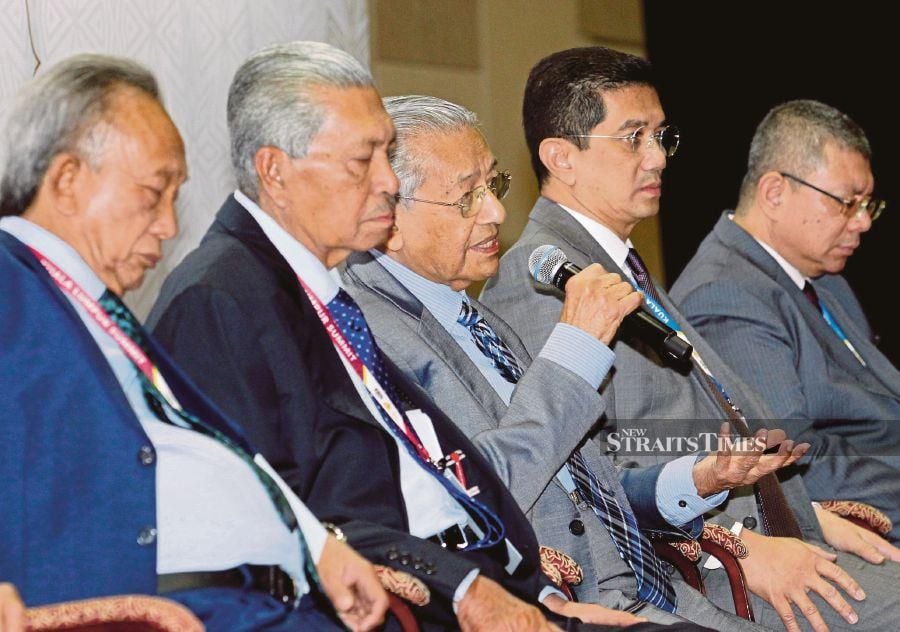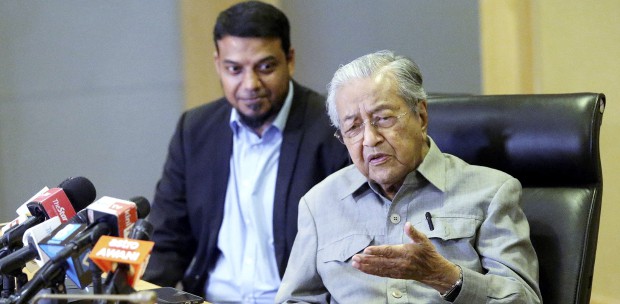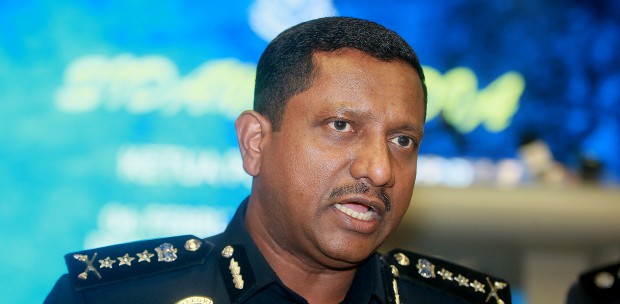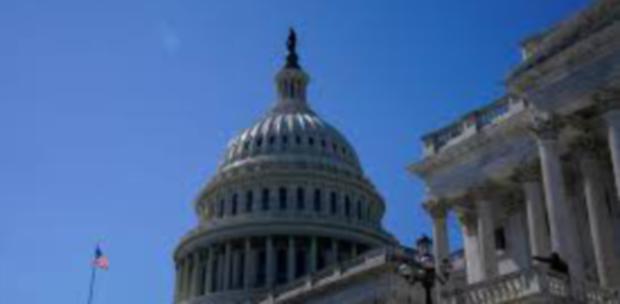KUALA LUMPUR: Sanctions imposed on Muslim countries is evidence of democracy at its worse, said Prime Minister Tun Dr Mahathir Mohamad.
This was because such sanctions often have a ripple affect even on countries other than the ones being sanctioned upon.
Speaking to the media after the closing ceremony of the Kuala Lumpur Summit (KL Summit) 2019 here today, Dr Mahathir said he did not believe in the imposition of sanctions as it often benefited superpowers.
"A sanction is a criminal act, because you are not only punishing the concerned countries, you punish other countries as well.
"When they (the United States) applied a sanction on Iran, we (Malaysia) lost our market. Iran is a big market for us, and trade between us has been reduced almost to nothing," he said when asked to comment about the US' sanctions against Iran, and boycott of Gulf states against Qatar.
Iranian president, Dr Hassan Rouhani and Emir of Qatar, Sheikh Tamim Hamad Al Thani were both present at the opening of the KL Summit on Thursday.
Dr Mahathir, who is the summit's chairman, said it was also unbecoming for any democratic nation to impose a sanction on another.
"This kind of thing can only be done by strong countries, (not) weak countries like Malaysia. I would like to apply a sanction on (US president) Mr (Donald) Trump but I cannot, because I am a small man. But he can apply sanction to all countries, and we all suffer, this is democracy at its worst.
"While they talk about democracy and freedom of speech and this and that, they themselves deny democracy to other people," he said.
Dr Mahathir also commented on the backing out of Pakistani Prime Minister Imran Khan from the summit, and invitation to the summit being declined by Saudi Arabia's King Salman Abdulaziz Al-Saud.
"We would be very happy to have had Imran Khan with us, but for some reason of his own, he was not able to attend. It’s sad that he was not able to attend, because at the United Nations (General Assembly), the three of us, (Turkish President Recep Tayyip) Erdogan, Imran and myself, thought we should work together.
"If they cannot come this time, maybe we can meet again at a later stage," he said when responding to a question on whether Saudi Arabia’s pressure on Pakistan had anything to do with Imran's no-show at the summit.
He said the absence of Saudi Arabia's head of state was also the kingdom's right.
Dr Mahathir said he was nevertheless satisfied that delegates, scholars and other representatives at the summit were able to discuss the plight of weak Muslim nations and ways to forge efforts to help them.
Dr Mahathir said wars have also occurred within Muslim nations, and this has weakened the ummah.
"When we are weak, people bully us. They take action. Expelling us from our countries, and they also cause wars in default within Muslim countries. This conference points out that we have to do things for ourselves. We cannot depend on other people to stop attacking us because they are stronger."
On a separate matter, Dr Mahathir said the 18 successful exchanges of instruments in various fields which took place throughout the summit included the setting up of a centre of excellence, defence developments, exchange students, education and other capacity-building efforts.
"We believe in carrying out things, in doing things, and not just making resolution or engaging in a long debate. We have signed 18 agreements between us, particularly between Malaysia and Turkey and Malaysia and Qatar. It shows that we have actual things to do after this," he said.





